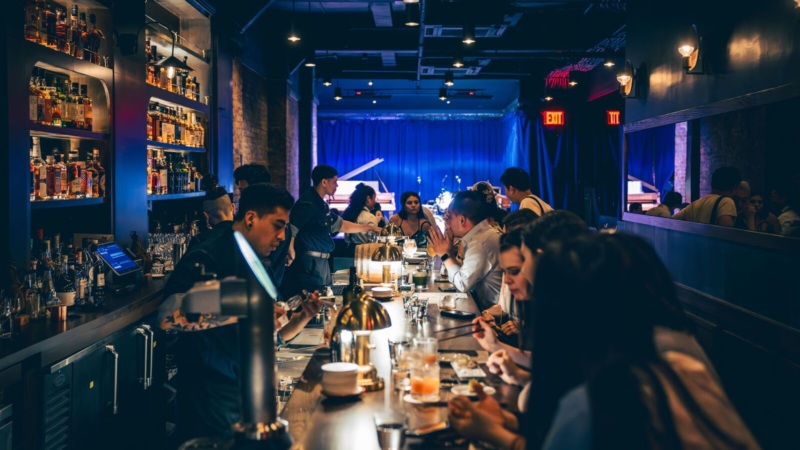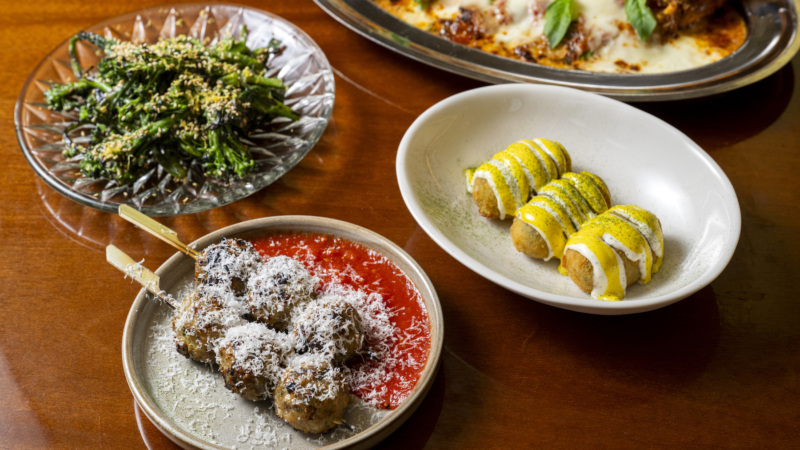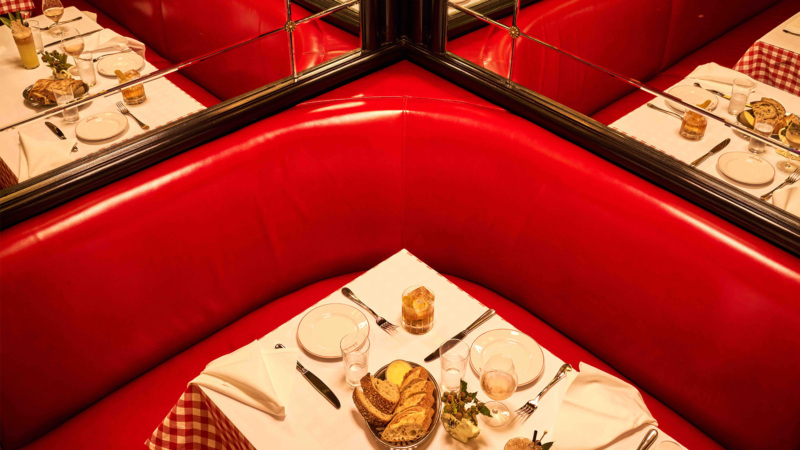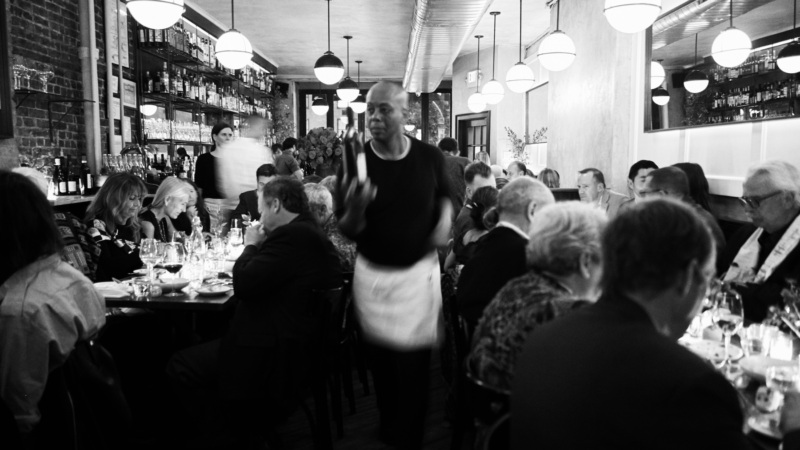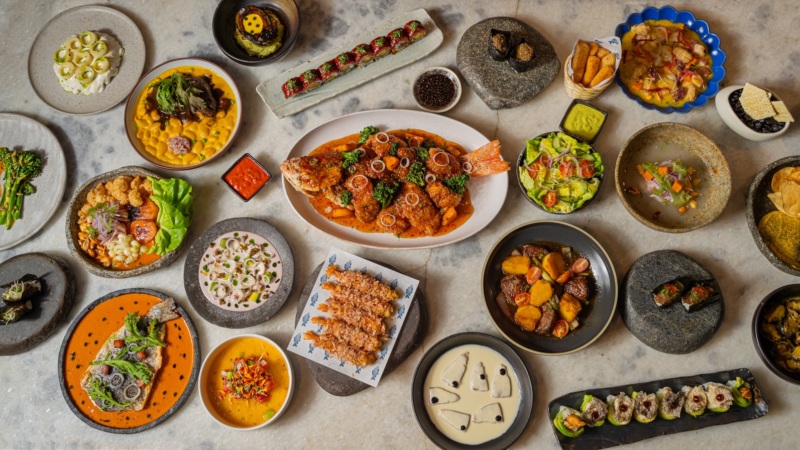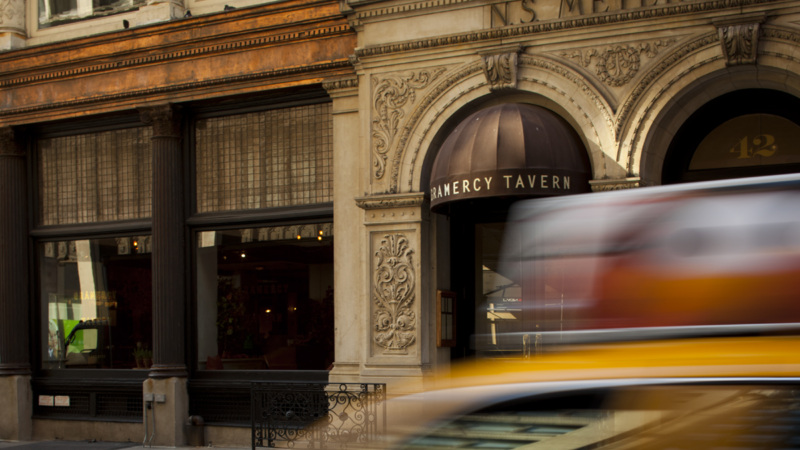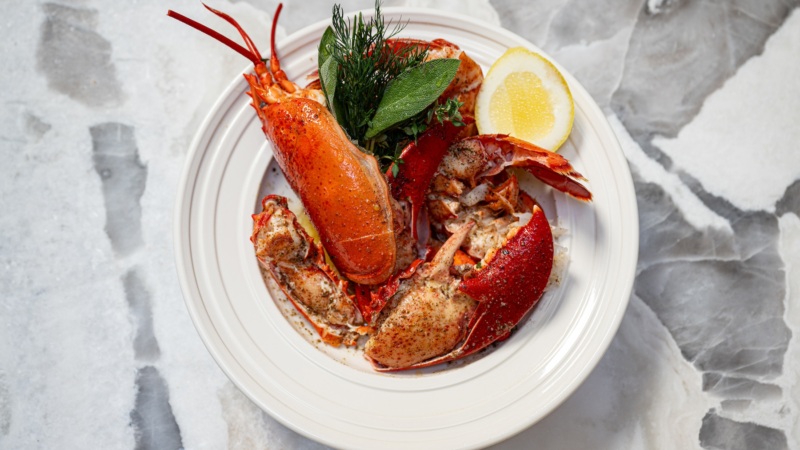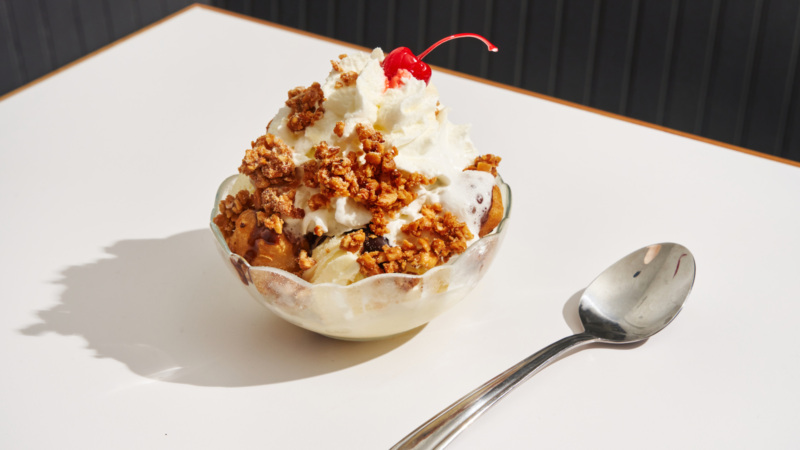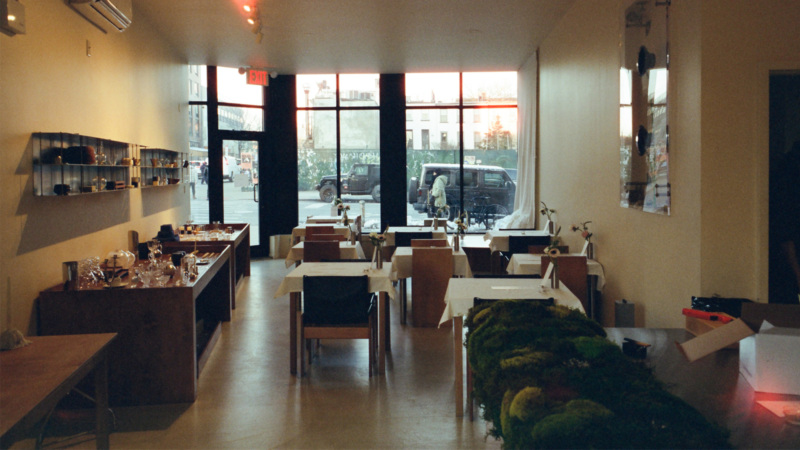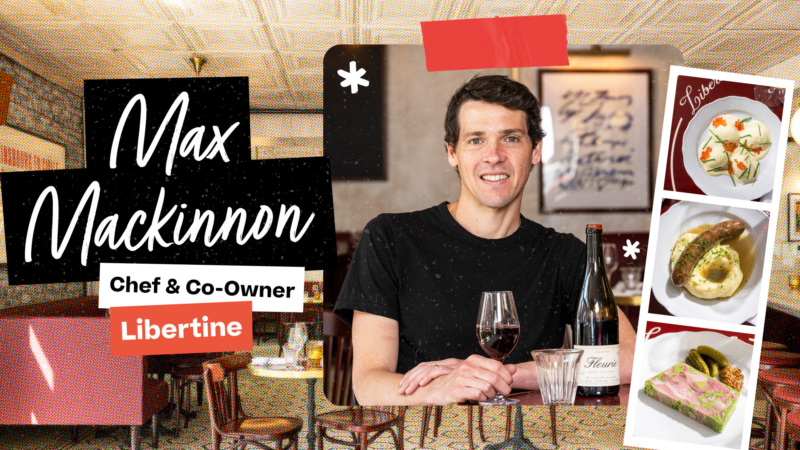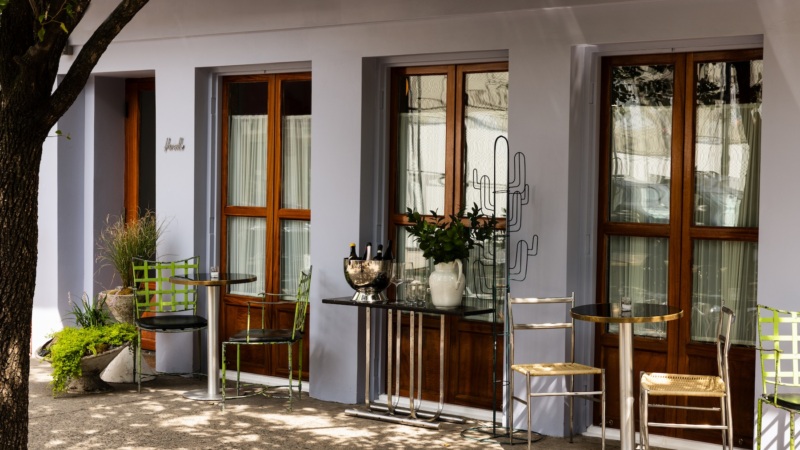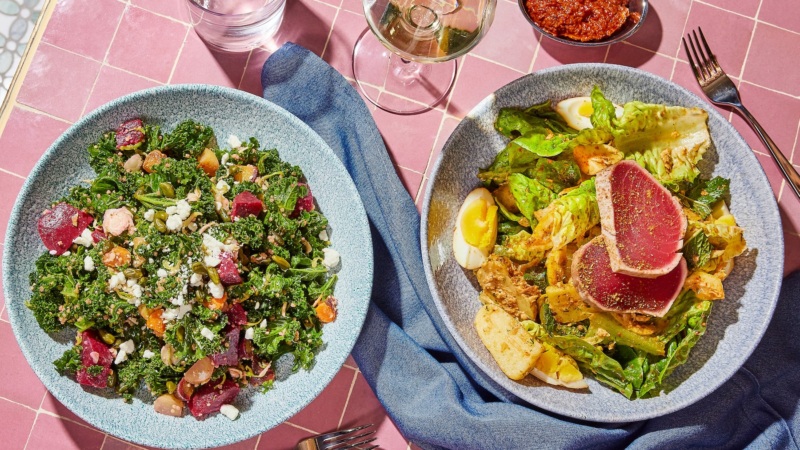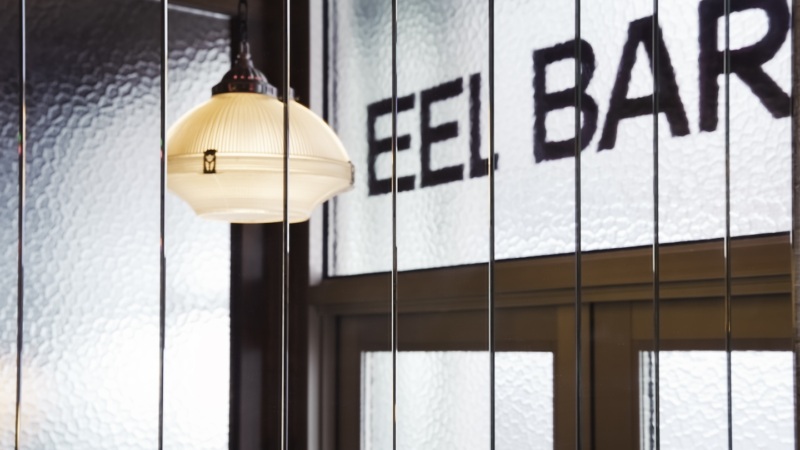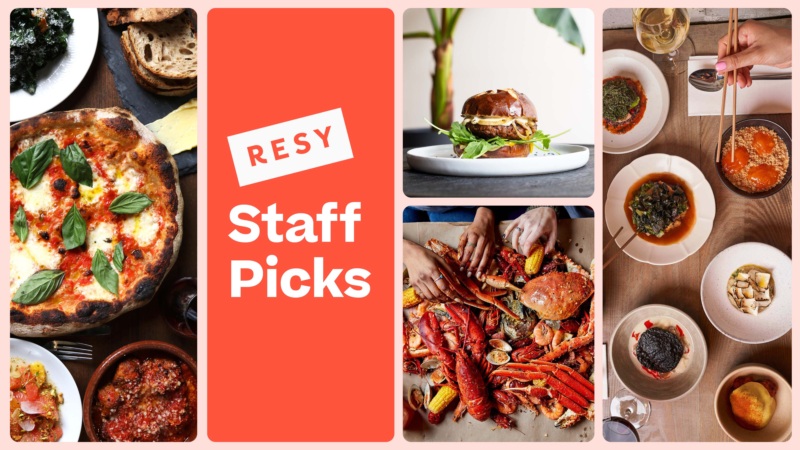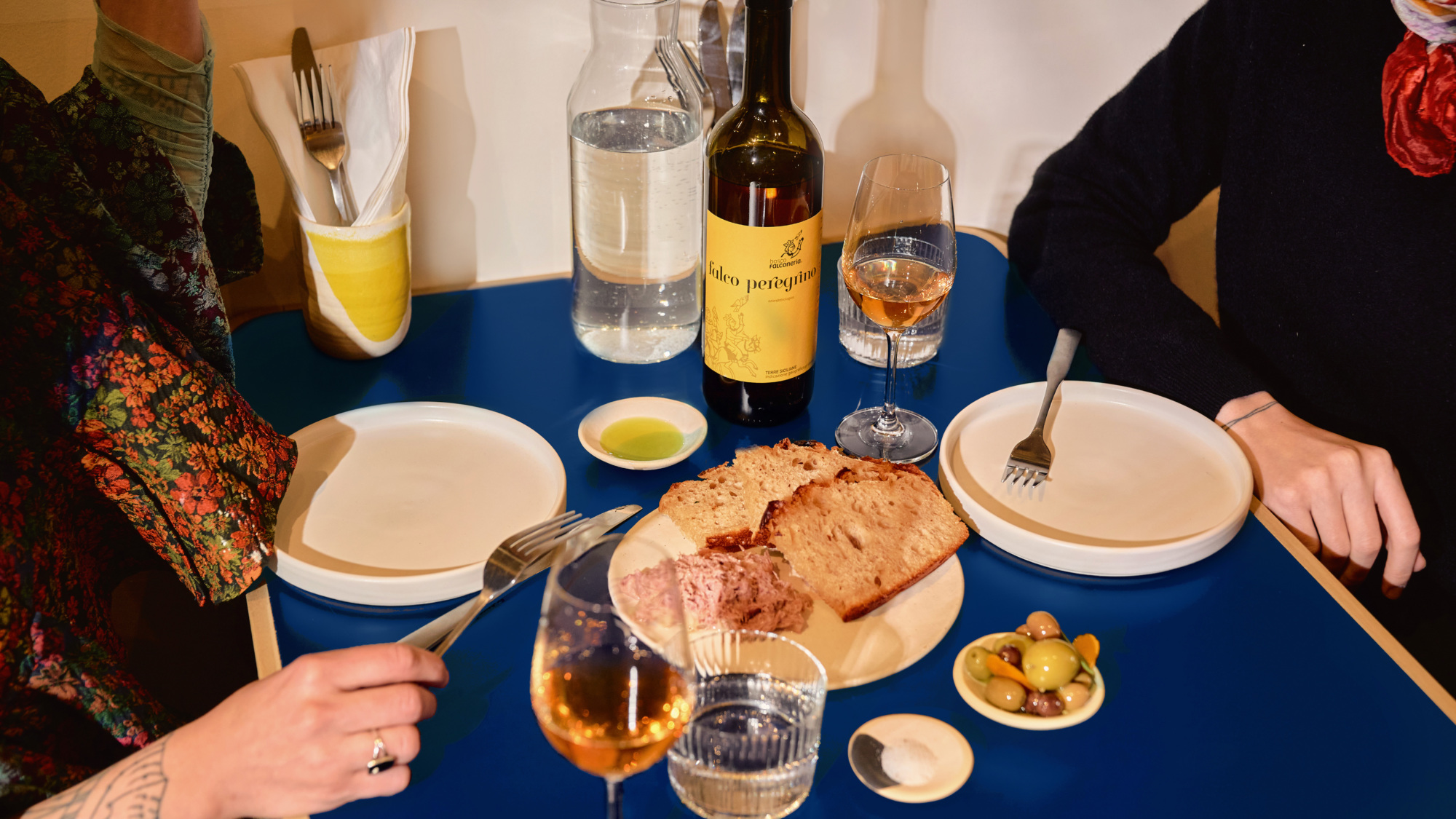
Everything You Need to Know About Ostudio, Bed-Stuy’s Collab-Driven Wine Bar
Before you go to a restaurant, what do you want — or need — to know most? In our series, The Rundown, we’re sharing all the essentials about newly opened (as well as some of your favorite) restaurants.
Creative endeavors have always been at the heart of Ostudio in Bed-Stuy, Brooklyn.
In 2019, Argentinian ceramicist and former chef Fernando Aciar opened Ostudio as a creative co-working space where he and other makers — from carpenters to illustrators — could work under one roof. A cousin to his Ocafe in Greenwich Village, where he serves Latin-inspired daytime fare like acai bowls and pão de queijo, Ostudio also had room for a restaurant, too. Aciar always planned to open a restaurant in the street-facing section of the multi-studio space, which he planned to open after the various creative residents settled in. Those plans, however, slowed down when the pandemic arrived, but now, it’s finally here.
Here’s everything you need to know about this holistic, dynamic, and exciting new addition to the New York City dining scene, before you go.
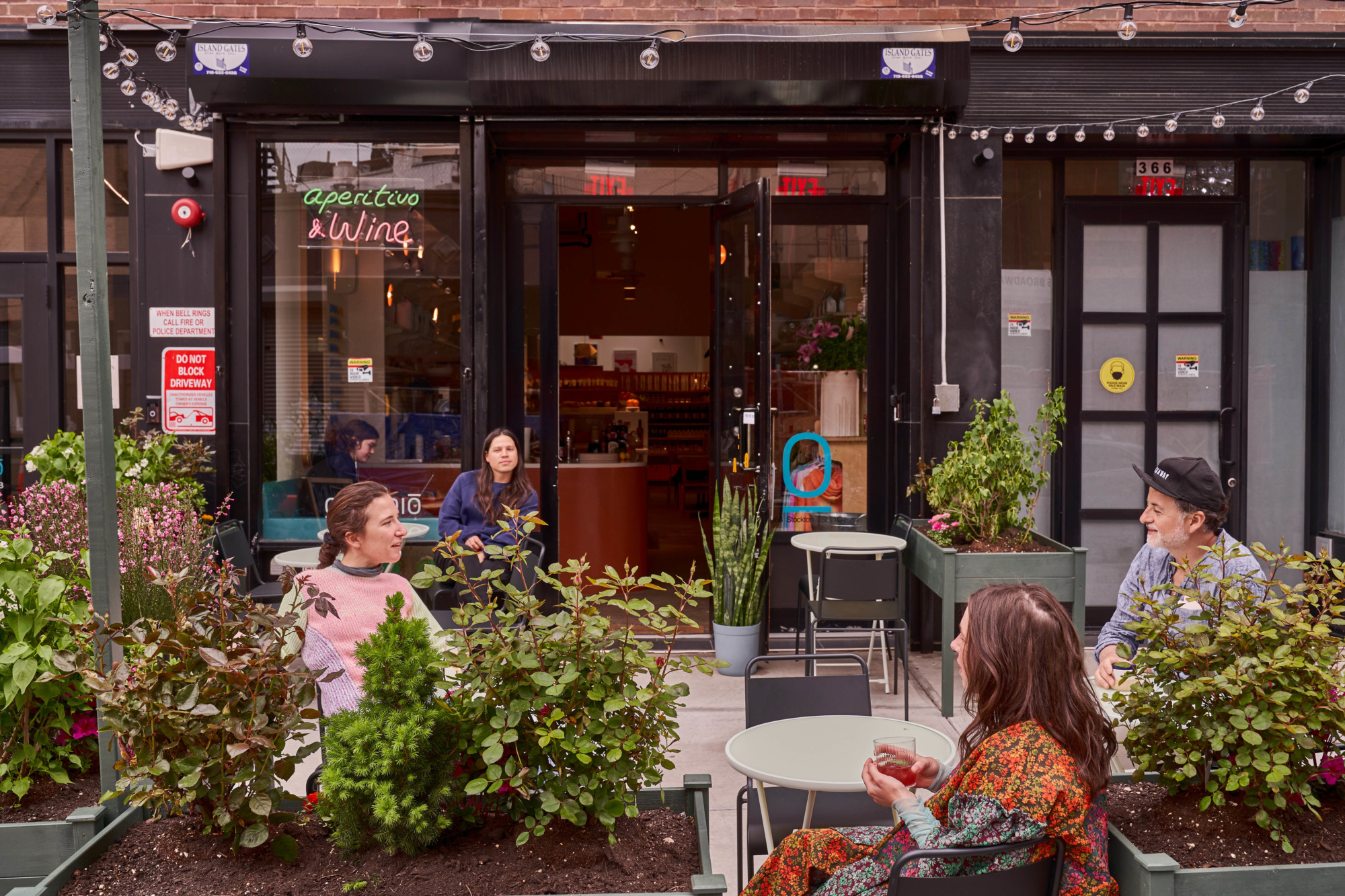
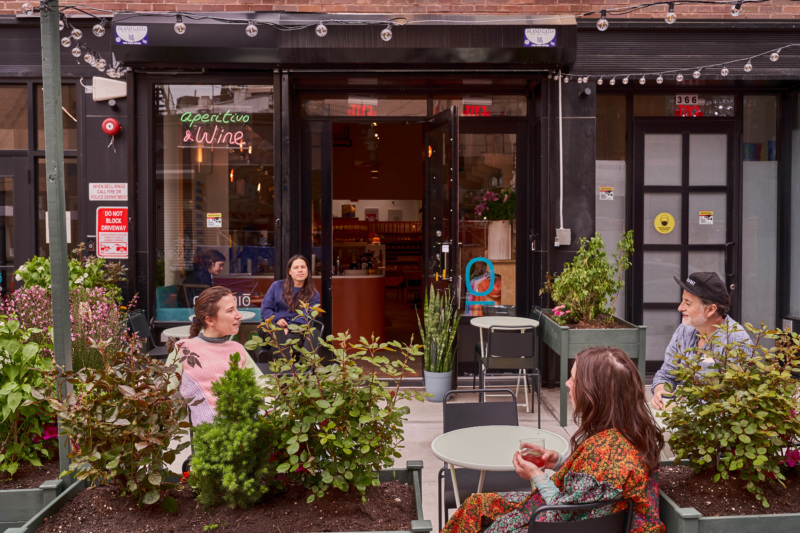
1. Ostudio is a café and market by day and a wine bar at night.
In the daytime, the restaurant operates like another Ocafe and at night, it transforms into a wine bar outfitted with pops of playful colors and Aciar’s eponymous (friends call him “Fefo”) brand of ceramic tableware. In the back, a market called Odeli sells other locally made products, from glassware by Mamo, a nearby maker, to dried pasta and tinned fish.
Ostudio at Night is how Aciar refers to the evening program, when a house menu of seasonal snacks and specials is accompanied by a handful of dishes from a resident chef who rotates every few weeks — plus lots of wine options by the glass and bottle.
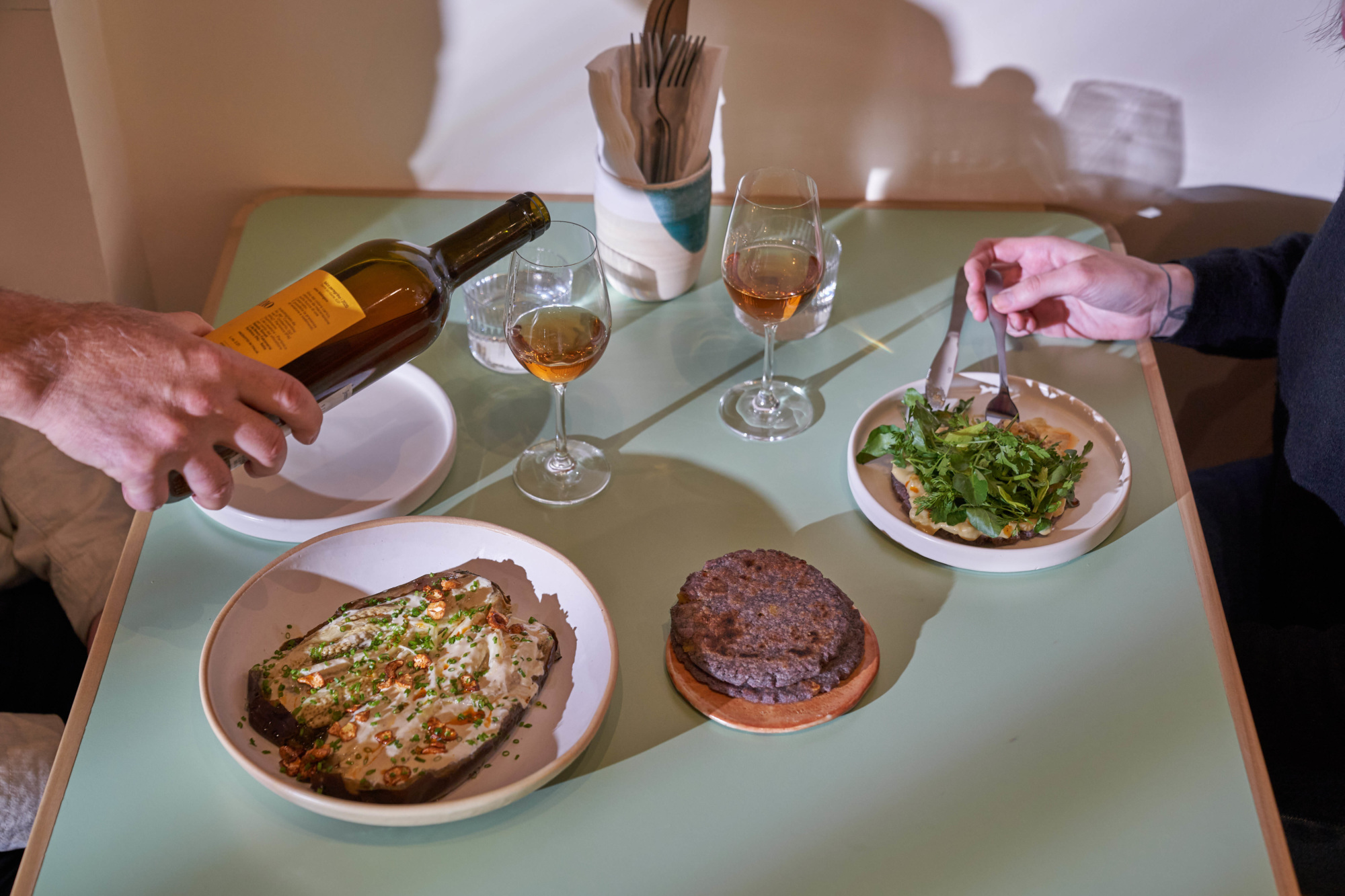
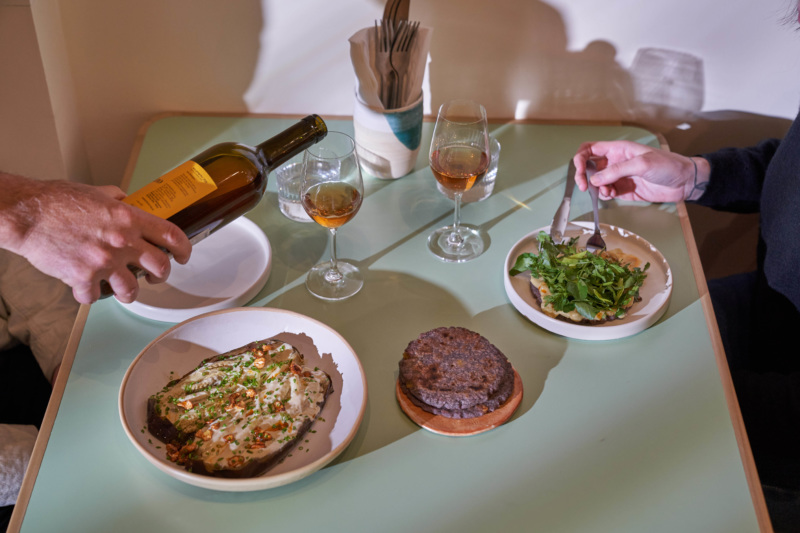
2. Ostudio’s house menu is crafted by chef Omri Silberstein.
Although Aciar was a chef prior to becoming a ceramicist and restaurateur — cooking with Francis Mallmann in Uruguay, at El Celler de Can Roca in Spain, and at Chez Panisse in Berkeley, Calif. — here he fills the role of owner.
Stepping into the chef role is Omri Silberstein, who worked previously at June Wine Bar and Racines before taking the reins at Ostudio. Silberstein’s concise menu is always changing in conjunction with the seasons and the influence of the restaurant’s visiting resident chef, but right now it includes dishes like seared squid with daikon and Asian pear, a simple little gem salad with cashew dressing, and duck rillette with pickles and jalapeño.
“His seasoning is very much like mine in terms of the depth of salt, acidity, and floral fragrance,” says Aciar. The sourdough bread, another menu mainstay, is sourced from Apt. 2 Bread, a local bakery run by Carla Finley.
3. A roster of resident chefs creates for a collaborative culinary environment.
Ostudio is first and foremost a collaborative creative space, and that extends to the culinary programming as well. “That’s why the residency is happening, to bring a vast amount of ideas and ways of serving to the community,” Aciar says. This summer, the kitchen is hosting an array of notable New York culinary talent, including chefs Greg Wong (July 5 to 9) and Jay Wolman (July 12 to 30), as well as Javier and Jesse Zuniga of Bad Habit ice creams (August 2 to 27).
Each resident chef serves a selection of dishes to complement those of Silberstein’s, and also oversees other aspects of service. For example, on Saturdays during his recent residency, Filipino American chef Woldy Reyes covered all of the tables in the restaurant with banana leaves. When the Zunigas take up their residency in August, they plan to play punk records from their vinyl collection on Ostudio’s turntables.
“We’re still a restaurant, but we’re also a creative space, so we never want to stop being a creative environment,” Aciar says. You can find the full residency schedule, which is booked through fall, on Ostudio’s website.
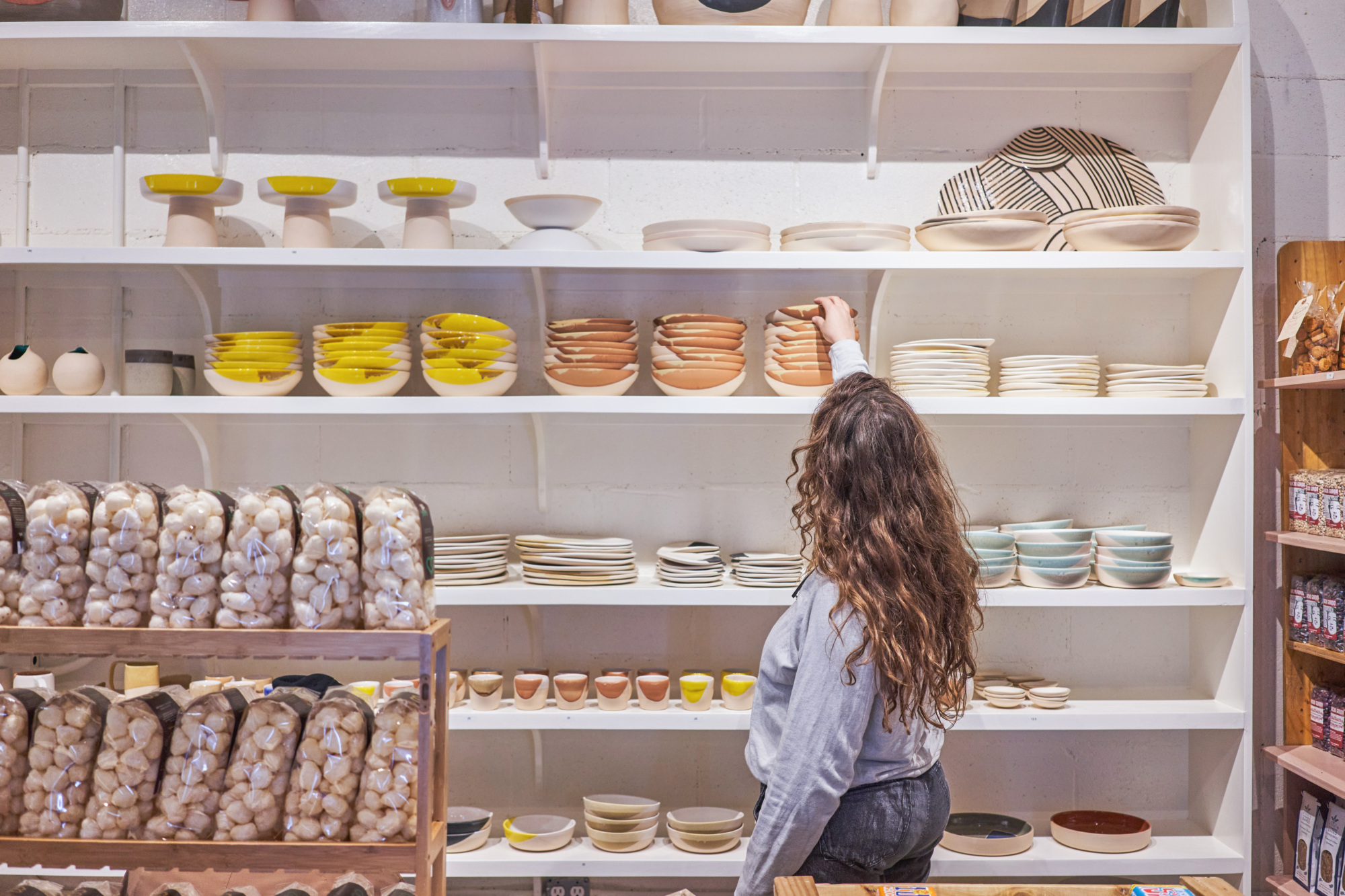
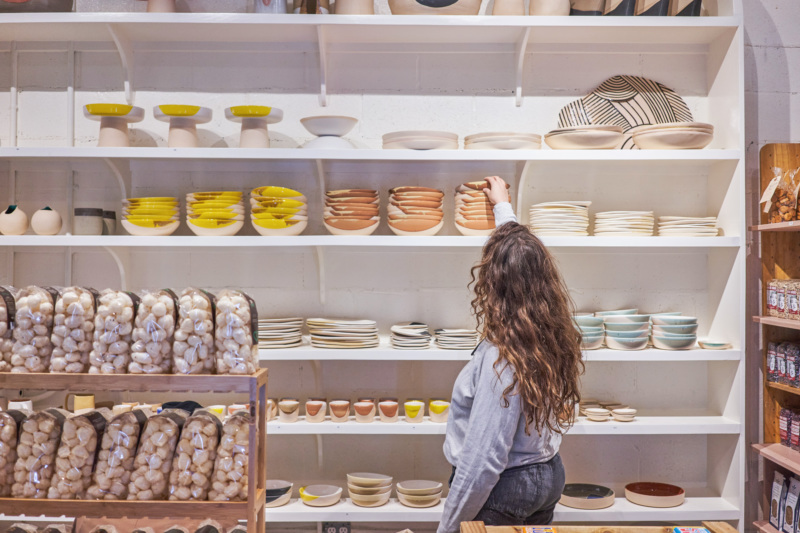
4. All of the tableware is made on-site.
In addition to being the restaurant owner, Aciar is also its tableware supplier. All of the ceramics you’ll find on your table at Ostudio are made by his eponymous Fefostudio brand. You can also purchase his ceramics and textiles at Odeli, which sits between the restaurant and Fefostudio, a dedicated studio where Aciar makes his signature ceramic mugs, bowls, wine coolers, and other tableware behind the restaurant.
Aciar uses the same five colors (blue, yellow, teal, coral, and terracotta) in his work, including ceramic light fixtures and naturally dyed textiles. Those colors have factored into the overall design of the restaurant, as well. Some tables and walls are painted in a single shade, while others are white. “Sometimes it looks like a kindergarten,” Aciar says. “But that’s on purpose; I’m trying to bring color and make places more happy.”
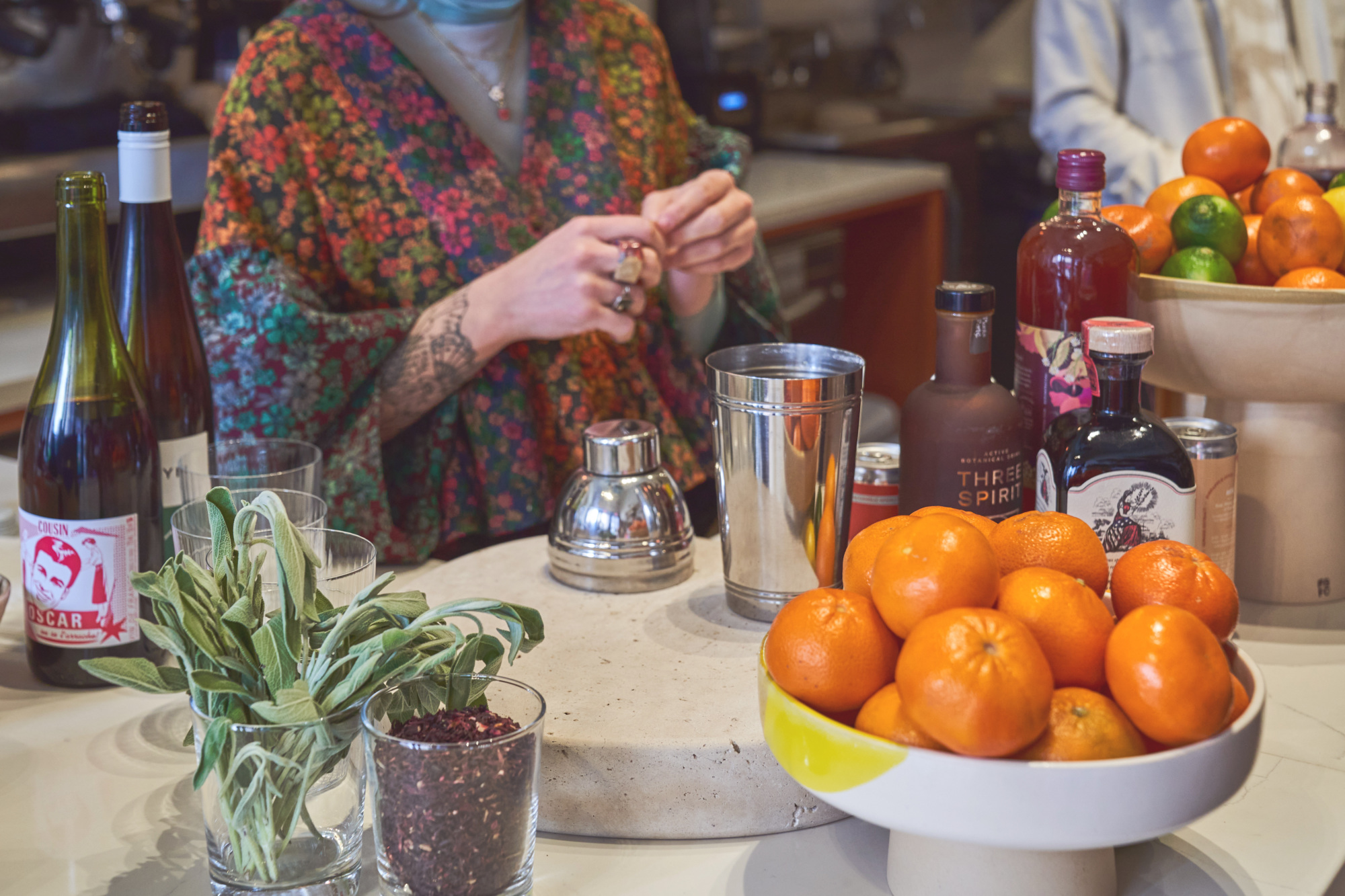
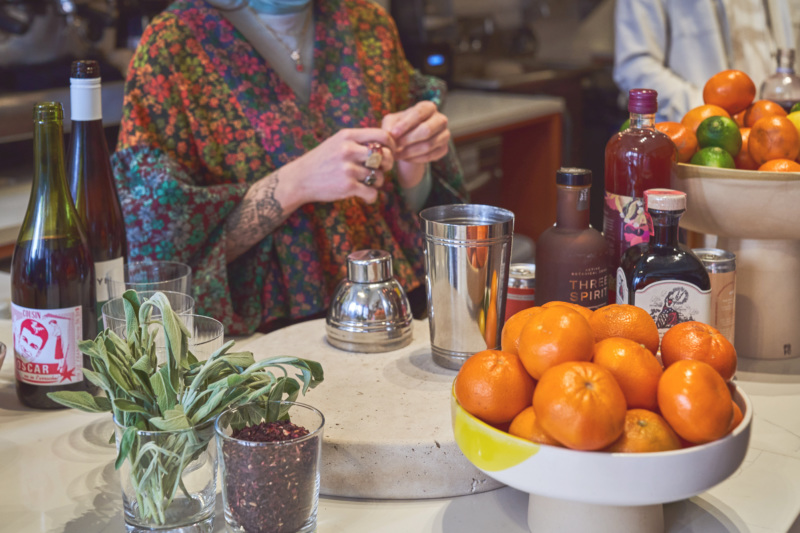
5. An affordable, all-natural wine list is complemented by plenty of non-alcoholic options.
The natural and organic wine list is curated by Ostudio’s sommelier, Rachael Brady Grace. It’s comprised of 60 bottles with 10 to 15 options by the glass. Aciar says it was important for him to be able to offer a wide selection of bottles for under $80, which is increasingly hard to find in New York restaurants. Furthermore, between his and Grace’s connections — whether it be through working together in the past, or collaborating on a label — in addition to those of his wife, Anna Polonsky, the founder and creative director of Polonsky & Friends, they’re able to carry many wines from winemakers with whom they have a personal connection. “You want to support your community and your friends, and that’s happening here,” he says.
In addition to wine, Brooklyn Kura sake, and a few types of beer, Ostudio also pours lots of non-alcoholic “botanicals” including a Ghia spritz, tepache tonic, and shots of Pathfinder, which is hemp-based and aromatic.
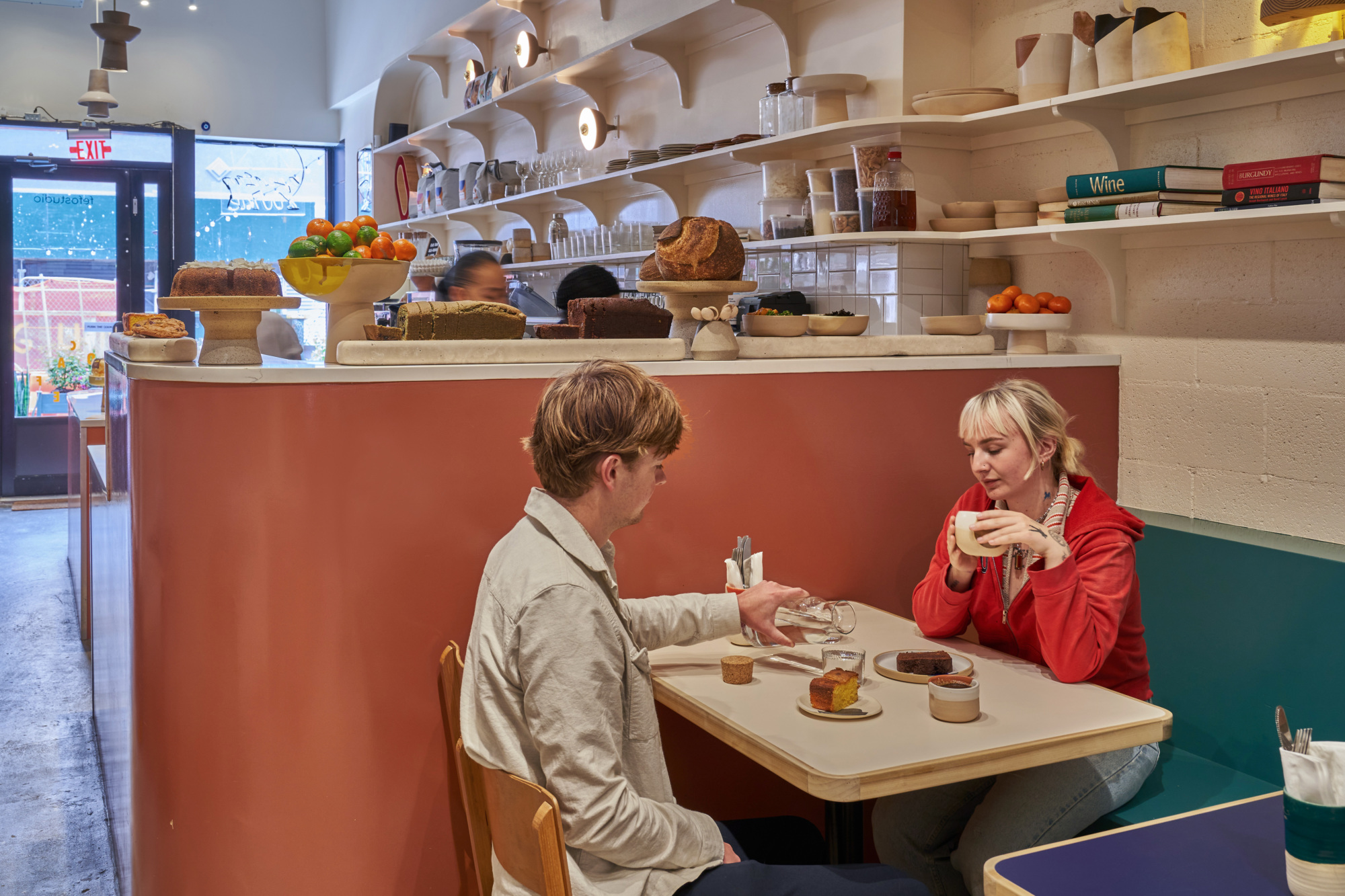
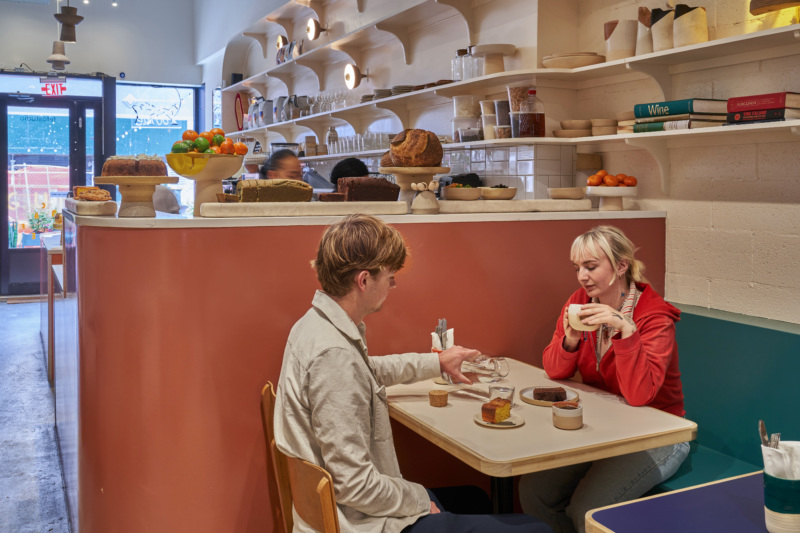
6. You should finish every meal with flan.
Let us let you in on the menu’s sleeper hit: the flan. The caramel custard pudding is a childhood favorite of Aciar’s, and here it’s served in generous rustic spoonfuls alongside scoops of dulce de leche and crema. It’s a fantastic finish to dinner at Ostudio.
Ostudio at Night is open Monday through Friday from 5 p.m. to 10:30 p.m. During the daytime, Ocafe is open from 9 a.m. to 4 p.m.
Emily Wilson is a Los Angeles-based food writer from New York. She has contributed to Bon Appétit, Eater, TASTE, The Los Angeles Times, Punch, Atlas Obscura, and more. Follow her on Twitter and Instagram. Follow Resy, too
Discover More
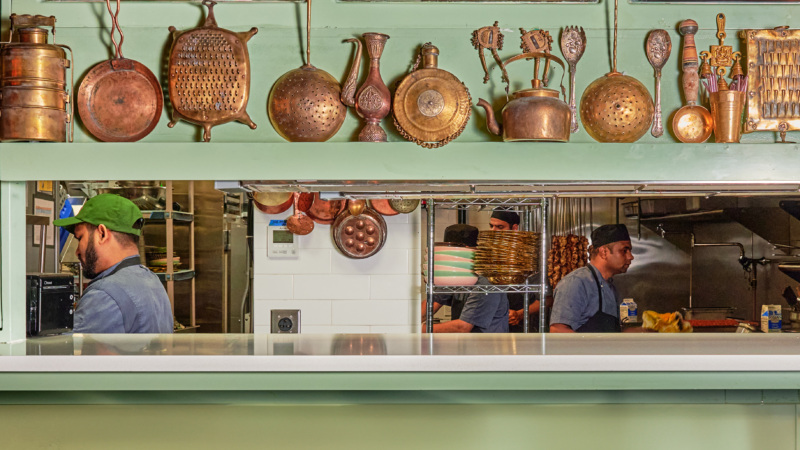
Stephen Satterfield's Corner Table



